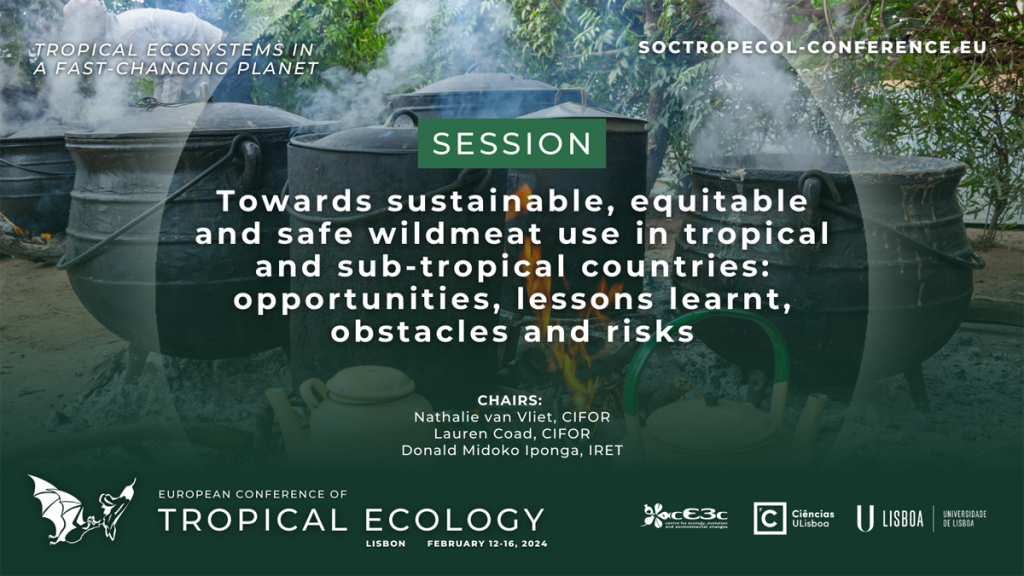Towards sustainable, equitable and safe wildmeat use in Tropical and sub-tropical countries: opportunities, lessons learnt, obstacles and risks

Wild meat refers to meat sourced from non-domesticated terrestrial mammals, birds, reptiles, and amphibians and is often consumed due to a lack of alternatives and plays a pronounced role in peoples’ health in contexts where other sources of protein are either unaffordable or unavailable. In light of the importance of wild meat to food security, incomes and wellbeing, there is growing interest in understanding the structure and operations of wild meat use networks and how the sector can provide a sustainable and safe source of protein as well as contribute to equitable benefits.
The aim of this session is to bring together practitioners and researchers from South America and Africa to share lessons learnt about the opportunities and risks offered by the wildmeat sector. The presentations will evolve around three main questions:
1. How are current wildmeat value chains structured and who benefits or bears the costs?
2. What indicators, tools and approaches are being used to measure ecological sustainability of wildmeat use?
3. What are the risks from a one health perspective and what processes are in place to develop food safety protocols related to the use of wildmeat?
4. What are the determinants for sustainable, equitable and safe wildmeat use?
Speakers:













